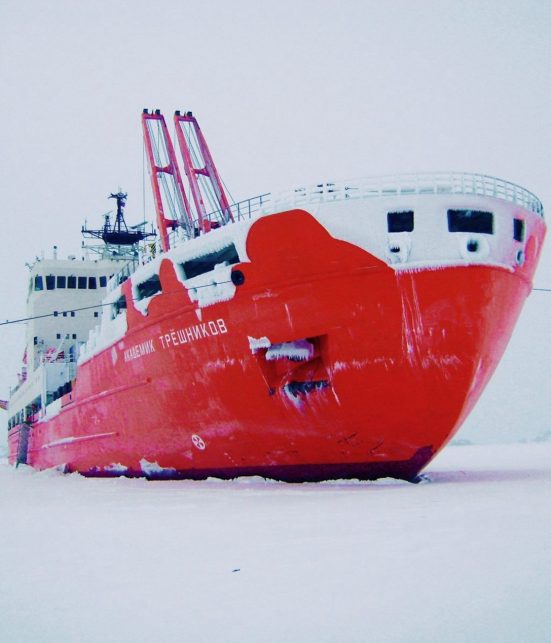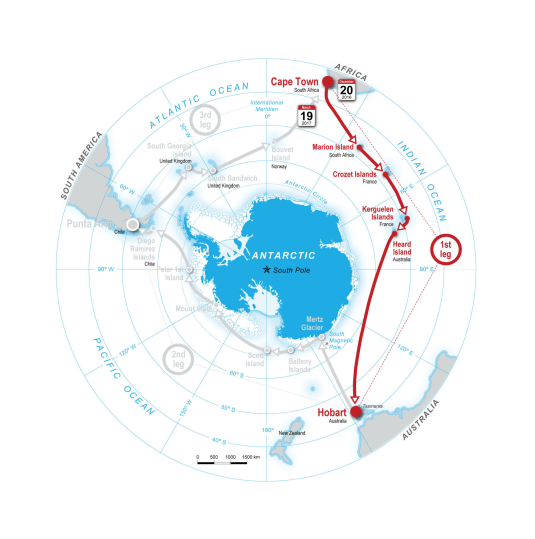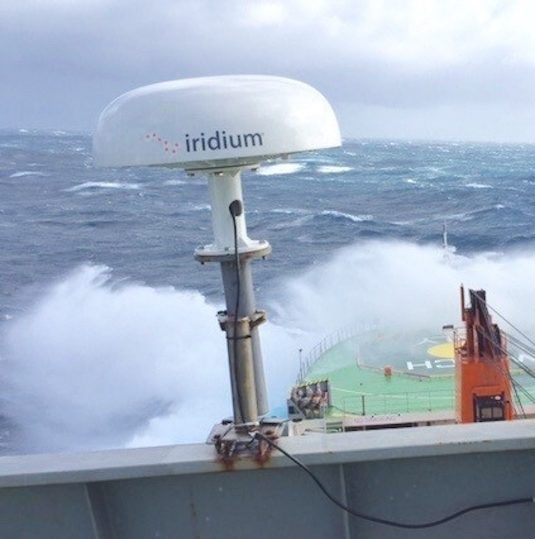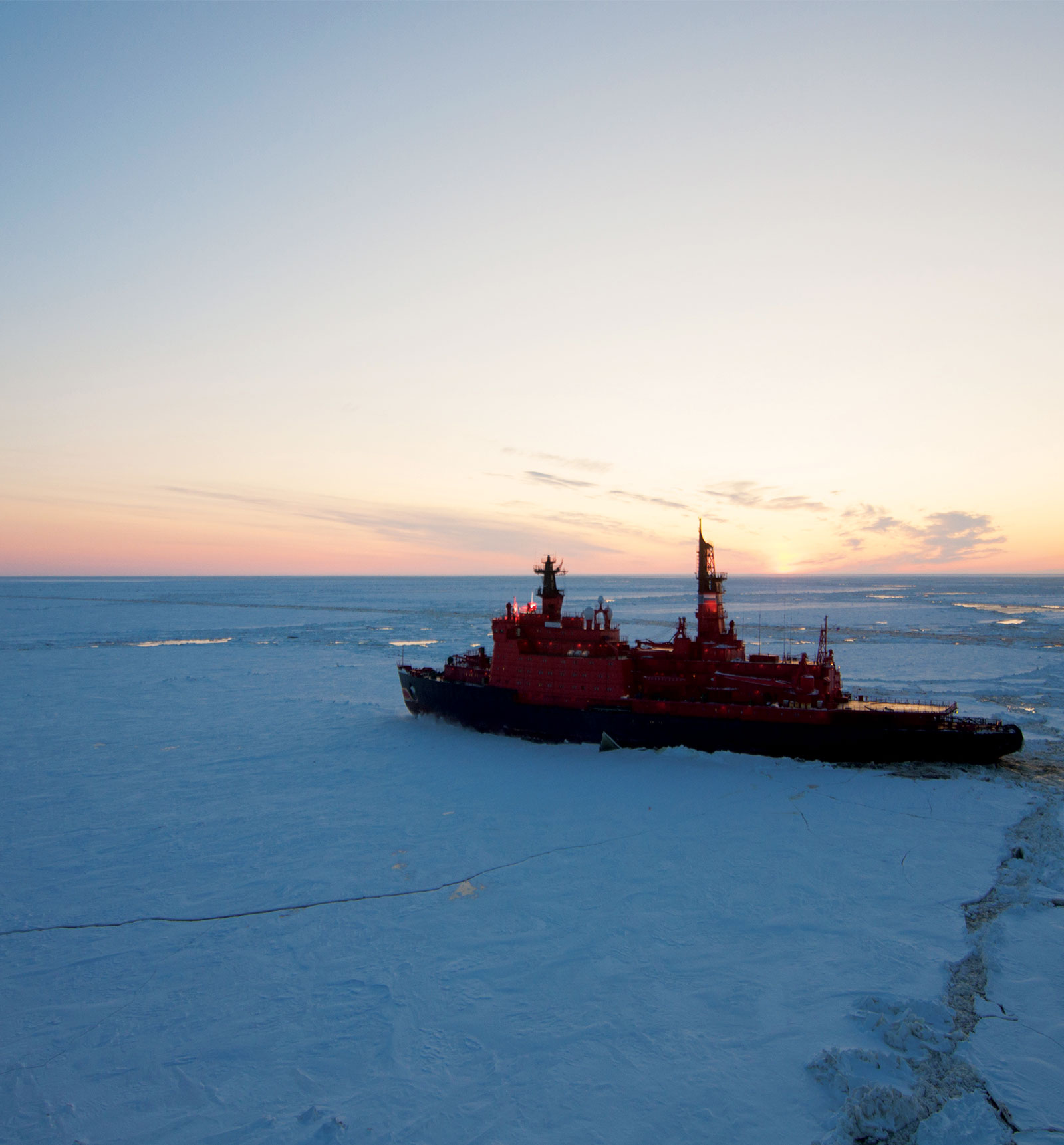
At A Glance:
-
The Challenge
An arduous four month journey into the one of the most remote places on earth leaves this international team of researchers with unique communication needs.
-
The Solution
Iridium’s tracking and communication devices provide a dynamic toolkit for conducting and relaying critical findings.
-
The Impact
The collection of thousands of samples of data has global environmental and health implications.
- 5academic and environmental domains
- 22research projects
- 22,637samples of data collected

The Challenge
Polar expeditions provide insights on conditions at the poles which both reflect and affect climate across the rest of the globe, thereby making understanding the Antarctic a priority for climate and environmental scientists.
Organized by the Swiss Polar Institute, ACE was a three-month voyage through the Southern Ocean, circling Antarctica aboard the Russian-flagged research vessel “Akademik Tryoshnikov.” Guided by a mission to enhance international relations and collaboration between countries, ACE aimed to motivate the next generation of explorers and scientists in polar research. The expedition conducted 22 different research projects in climatology, glaciology, oceanography, biology, and biochemistry. At the heart of this pivotal research was a team of scientists from Switzerland, Spain, France, the United Kingdom, Russia, South Africa, Canada, Australia, and the United States, all seeking to remain connected to their home research teams — and their friends and families — during four daunting months at sea. Extreme conditions and high latitudes of the Southern Ocean presented a communication challenge which traditional geostationary satellites could not resolve.

The Solution
ACE organizers turned to Iridium to outfit the Akademik Tryoshnikov for the voyage, using two Iridium Pilot® terminals on the ship, providing a total of 256 kbps of bandwidth. This solution provided more than enough bandwidth to send and receive data collected during experiments. Additionally, the two helicopters on the ship were equipped Iridium Connected® Spidertracks devices, which enabled the crew to track the location of the aircraft in real time.
Scientists who went onto islands also carried Iridium GO!® devices, which enabled them to use their own smartphones to communicate with the ship, other crews, and their home labs, as well as marking their positions in case of emergency while ashore. Lastly, the six telephone lines provided by the Iridium Pilot terminals allowed researchers and the ship’s crew to speak with their families on the other side of the globe at any time. The unique design of the Iridium satellite constellation in addition to the global network of 66 cross-linked Iridium satellites in orbit makes it the most reliable mobile satellite service for such expeditions. Even in extreme latitudes and deep seas, Iridium’s widespread capabilities provide connectivity where geostationary satellite signals would otherwise be weak and unreliable.
The Impact
Using Iridium technology to stay connected, ACE collected reams of data — 26,637 individual samples including 3,916 ocean water samples, ice cores, CO2 levels, and phytoplankton samples. The expedition was able, according to chief scientist Walton, “to do things which most expeditions don’t get a chance to do, like see islands without clouds and land high up to collect ice cores,” including what he believes to be the first cores from the portion of the Antarctic continent, on the Mertz Glacier, where the team went ashore.
Scientists on the expedition also used Iridium to maintain a blog describing their experiments and initial observations. Ornithologist Peter Ryan of the University of Cape Town blogged extensively while on the voyage, keeping readers apprised of the numbers of different birds he observed on islands along the way. Ryan is inspired by the future possibilities this expedition will enable, and excited to share the knowledge that their data and samples have allowed them to discover.
““Antarctica is a remote, challenging continent, and understanding it is a crucial part of the future of everyone on Earth.”
–David Walton,
Chief Scientist - Antarctic Circumnavigation Expedition (ACE)
Want more info?
Get In Touch With Our Team


